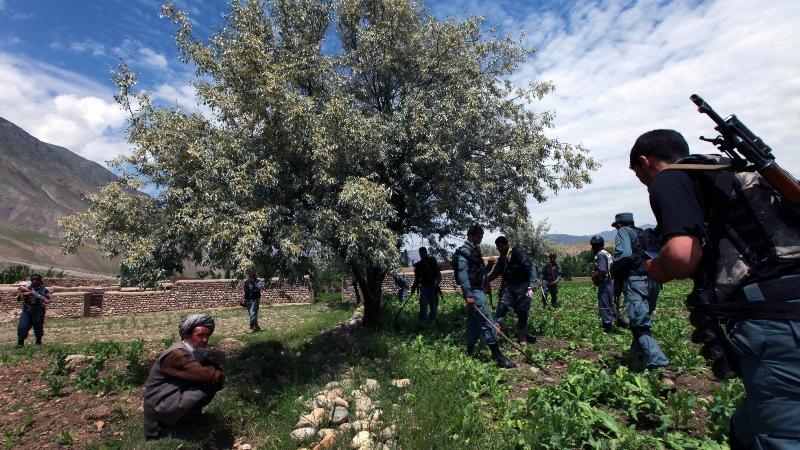KABUL - A senior Afghan counter-narcotics officials said on Tuesday that poppy eradication operation carried out earlier this year cost lives of 133 members of the security forces, which is twice as big as 2012.
Afghanistan’s Deputy Minister for Counter-Narcotics, Mohammad Ibrahim Azhar, told a news conference in the capital, Kabul, that the 40-day operation launched during the season for sowing opium poppies, which starts in December in Afghanistan, also left 86 others injured.
Mr. Azhar also said warm weather conditions [favourable for poppy to grow] and “non-cooperation of some government organs” have hampered efforts to eradicate the illicit crop in Afghanistan, which is the largest producer of the illicit crop in the world.
Highlighting the success of the campaign, Mr. Azhar said the government destroyed the illicit crop planted in about 6,000 hectares of land in eastern and southern Afghan provinces. However, he said, given the obstacles the government is unlikely to achieve the target of clearing 15,000 hectares of poppy fields this year.
The obstacles highlighted by the Afghan Deputy Minister added to the “worrying situation” as described in a joint report of the United Nations Office on Drugs and Crime (UNODC) and the Afghan Ministry of Counter-Narcotics “Afghanistan: Opium Risk Assessment 2013” released on 15 April. The assessment predicts an increase in opium cultivation in12 of Afghanistan’s 34 provinces this year.
“The assessment suggests that poppy cultivation is not only expected to expand in areas where it already existed in 2012 but also in new areas or in areas where poppy cultivation was stopped,” said the assessment predicted.
The joint report found “a worrying situation,” particularly in the country’s southern, eastern, western and central provinces. The country’s southern region – comprising the provinces of Kandahar, Helmand, Uruzgan, Dai Kundi and Zabul, and which make up some of the relatively more insecure parts of the country – is expected to remain the largest opium cultivating region in Afghanistan, with Helmand retaining its status as the largest cultivating province, followed by Farah in the west.
The UNODC representative in Afghanistan, Jean-Luc Lemahieu, said last month timely government action may prevent the situation from turning too bad. “The government still has time to act (between now and the harvest season),” said Mr. Lemahieu. Poppy harvest time in the country varies from mid-April to July depending on location of provinces.
Related article:
- UN report predicts rise in opium cultivation in Afghanistan this year






